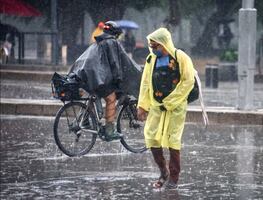Más Información

México y EU establecen grupo de alto nivel para contrarrestar a cárteles de la droga; reafirman cooperación en seguridad

Aplicará México cuota compensatoria definitiva a importaciones de calzado de China; estarán vigentes por 5 años

En una hora y 38 minutos se definió la política de seguridad México-EU; así fue la visita de Marco Rubio a Palacio Nacional

Estos son los 35 plaguicidas prohibidos por decreto presidencial; algunos aún se comercializan y usan en el campo

¡Rompió récord! Zona de lluvia intensa del 3 de septiembre fue 5 veces más grande que la del 10 de agosto: Segiagua
Students
from the University of the Valley of Mexico ( UVM ) and the Private University of Northern Peru use aquaponics , a sustainable system that uses plants and fish to produce biofuel .
Aquaponics
consists of feeding fish , which generates waste, which is full of nutrients, and it reaches the plants through a pump that feeds the plants; by taking these nutrients, the plants clean the water and return it to the fish. This system is used, mainly, in the production of edible plants.
In a statement, the UVM reported that the students are majoring in Environmental Engineering , at the San Rafael campus, as well as in the Peruvian university.
Jorge Ojeda
, the academic leading the project, explained that they used the Jatropha plant for the production of biofuel , which grows in Mexico , and it's easy to use and adapts to different climates; its seed contains about 40% of oil, and when extracted, it can be turned into biodiesel .
The project is also looking to promote sustainable fish farming through the use of a bioreactor , which can be used as a degradation system for organic matter, from fish and food waste, therefore, benefiting the environment, since "it is a system of biological degradation, which can break down fertilizers, organic matter, and pesticides".
gm









